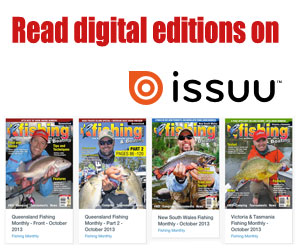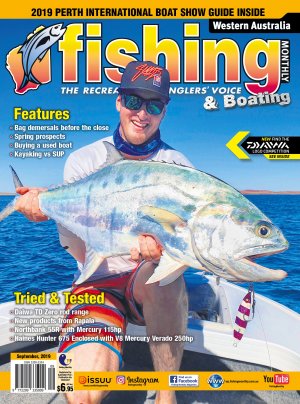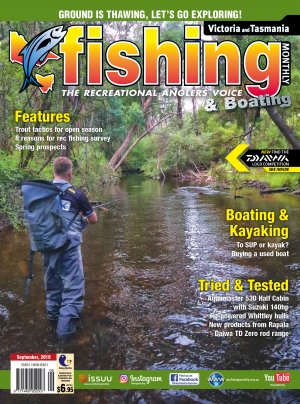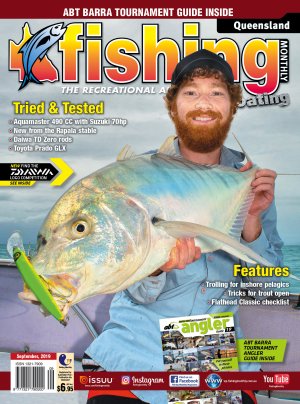IN RECENT times the freshwater scene in Australia has been picking up a lot of terminology that doesn’t always make sense to the average Joe Blow – or even myself sometimes! I’ve had several requests to write an article to explain some of the ‘fish talk’, so this month I’ve written up some terms and definitions.
I’ll start with lure types and explain what we call them and what it means.
• Jerkbait, suspending minnow – a bibbed minnow-style lure which, when wound down to a certain depth and stopped, will neither float up nor sink. It holds at that depth, allowing it to be tweaked in front of the fish for long periods.
• Crankbait – bibbed minnow.
• Lipless crankbait, trap, spot, bibless minnow, vibration lure, Jackall – a lure that has no lip, bib etc. to make it dive and wobble. Its vibration comes from the leading edge of the lure being forced against the water.
• Spinnerbait – called so because of the spinning blades on the wire with the lure part (called ‘bait’ in the USA) below with the hook attached.
• Plastic, grub, bait – a shad tail style soft plastic.
• Softies – soft plastics.
• Topwater lure – a lure that is worked on the water’s surface.
• Skirt – silicone dressing on a spinnerbait (also the apparel worn by some bassers).
• Reaction bait – crankbaits, spinnerbaits etc. These lures elicit an instinctive strike, rather than a measured feeding response.
• Slow rolling – Slowly winding a lure. This term probably originated from the practice of slow winding a spinnerbait so the blades are just rolling over.
• Burn and kill – Winding a lure very fast and stopping for a short period before resuming the fast wind.
• Hopping – stabbing your rod tip in between winds to make your lure hop across the bottom toward you.
• Shaking – very slightly shaking your rod tip while you are retrieving a plastic or have it sitting at a certain spot.
• Cranking – winding a lure.
• Getting bit – getting a bite or a hit on a lure.
• Mooshing – when the fish are taking a lure very softly.
• Blade bite – when a fish takes the blade of your spinnerbait instead of the head.
• Going off – when that the fish are very active.
• Jigging – Dropping a lure down to fish vertically and working it in their face.
I hope this helps the readers who at times don’t understand all the terminology in articles.
Brisk mornings and clear warm days are the norm at this time of the year. Surface action has usually finished by now in most dams like Maroon. The fish in Maroon and Moogerah leading into winter usually start to put some condition on and move into deeper water.
In Maroon the fish should start to take soft plastics as opposed to reaction baits, which have been their flavour for the last six months. This is a general rule but it doesn’t always work this way. Soft plastics can be worked off the banks or used for fish seen on your sounder.
In Moogerah the bass at this time of the year generally move off the shallow banks and follow the baitfish to deeper water. Target these fish (they are easy to find on your sounder) with soft plastics, deep fly, tailspinners or lipless crankbaits hopped across the bottom. Chances are, with the water levels being so low, you will still pick up a few on spinnerbaits on the shallow flats
For a fishing charter on Maroon or Moogerah, contact me at Greenfish Sportfishing Adventures on (07) 5463 4096 or 0407 596 814.
1) The author with a horse bass caught on a TN60 Jackall.
Reads: 1140



